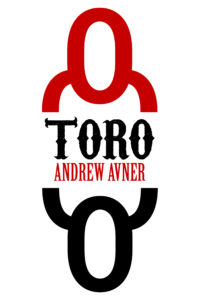“The Truth Will Set You Free”
I’ve always had an affinity for Aesop’s Fables and Disney animated films. I suppose, in part, that’s why my debut Latinx middle grade novel Toro features talking animals as principal characters in a story suffused with moral lessons, conceived to entertain, inspire, and educate.
From age-old fables and fairy tales to Carlo Collodi’s Pinocchio to present-day fiction, lies and liars have always been present in children’s literature.
Lies are a part of the human condition, told, in the simplest terms, to seek pleasure or avoid pain. They can be used as both a sword and a shield, to prey upon or protect. The duality of lies never ceases to fascinate me. There are forgivable lies and unforgivable lies, harmless lies and harmful lies, selfless lies and selfish lies, big lies and little lies. To further confuse the matter, there are varying degrees of lies, gray areas, and subsets. There are survival lies, protective lies, cover-up lies, persuasive lies, lies by omission, and so on. Interestingly, the truth is singular in form—there’s only one truth—the truth. While some tales teach lessons by dealing liars their deserved punishments, others reward liars for using their cunning as a survival stratagem to outwit dangerous enemies.
Stories can help children understand the complex nature of lies and guide them to navigate those they will inevitably encounter, discern the good ones from the bad ones, and learn the value of honesty and the truth.
In my book Toro, Alicía Catalina Cortés is a Spanish cow who wants to run with the bulls in Pamplona to prove herself noble y bravo, which is noble and brave. Because she’s a cow, tradition and her overprotective father, Don Murciélago Cortés, forbid Alicía from the running of the bulls.
Diego Del Toro is a Spanish bull who’s always dreamed of becoming a star of the Texas rodeo. Because he’s a toro bravo, which is a fighting bull, tradition and his overbearing mother, Condesa Maria Del Toro, force Diego to run with the bulls.
When their paths cross, Alicía sees Diego as a means to an end. She tells him that four cowboys from Fort Worth, Texas are in Spain to recruit bulls for the rodeo (a lie). She promises to arrange a rodeo audition for him (another lie, as the cowboys are simply thrill-seeking tourists visiting Spain for the running of the bulls). In return, Diego allows Alicía to go to Pamplona in his place, disguised as him.
Alicía deceives Diego to achieve her goal of running with the bulls. At this point in the story, Diego is little more than a stranger to Alicía, and it’s easy for her to lie to him. Without understanding the consequences of her deception, her lies can initially be seen as cunning or resourceful, creative, and inventive. She’s not lying to hurt Diego. She’s lying to help herself, blinded by desire and fueled by imagination.
As the story progresses, Alicía grows closer to Diego, and her deception weighs upon her conscience. Her best friend and confidant, an Iberian lynx named Doña Madonna de Doñana, forces Alicía to face the grave repercussions of her lies. By misleading Diego, Alicía risks permanently ruining his life, robbing him of his dream of becoming a star of the rodeo and condemning him to a life in exile from his family for disgracing them by breaking their tradition of running with the bulls.
Alicía ultimately feels Diego is more important to her than her desire to run with the bulls. When her goal changes, her lies become a double-edged sword. The same lies that brought Alicía closer to what she thought she wanted, now drive Alicía further away from what she truly wants. Despite the terrible consequences she fears will befall her, Alicía chooses to embrace honesty and the all-conquering truth.
One of the underlying themes of Toro is that it’s best to be honest.
When a villain lies, we associate the behavior with villainy. But when a hero lies, we understand that even good people can make mistakes and be dishonest. Alicía is a flawed character who makes mistakes. However, she becomes an exemplary character when she takes responsibility for her mistakes, learns from them, and proactively makes amends.
Alicía’s lies teach children that actions and words should not always be taken at face value. Sometimes we must question another’s intentions, even if they’re as likable or central to our lives as a story’s protagonist.
Toro may be used as a starting point for conversations with children about honesty and how to handle situations regarding lies. The following are some additional thoughts to ponder or discuss after reading the book:
Try to identify all the lies in the story and determine which are told to seek pleasure versus avoid pain; e.g., though Alicía lies to Diego to seek pleasure by pursuing her goal, the first lie she tells in the story is intended to avoid pain by escaping a prearranged marriage to a character who will become the book’s central antagonist, Don Julián Hernández. Because of her lie, Alicía unknowingly sets the antagonistic force in motion.
Sometimes we lie to ourselves, as Don Julián lies to himself until story’s end. No good comes of this. Only when Don Julián accepts the truth can he find peace, happiness, and contentment.
Don Murciélago tells a protective lie to Alicía, but eventually he tells her the difficult truth. Could his lie be considered forgivable?
By masquerading as Diego, Alicía exhibits another form of lying, impersonation.
Doña Madonna—the embodiment of honesty and integrity—serves as Alicía’s moral compass and voice of reason. Notice her contrasting counterpart, Jesús de los Jabalíes. These are two of my favorite characters. They can look at the same situation and draw entirely different and opposed conclusions.
Lying and cunning are both deceptive, yet the former is considered a vice, the latter a virtue.
The truth always surfaces in Toro, often echoing the biblical adage “the truth will set you free.”
September 17th, 2020 from Black Rose Writing
About the Book: Alicía Catalina Cortés is a fast and fiery Spanish cow who desperately wants to run with the bulls in Pamplona—but since she’s a cow, tradition forbids her to partake in the fiesta of San Fermín. Through her journey, Alicía learns that to be noble and brave, she must follow her dream and her heart, even if it means defying tradition.
Andrew Avner’s debut Latinx middle grade novel Toro is a pocket testimonial to the female protagonist’s fight for equality and empowerment. It also represents and celebrates diverse experiences and identities.
Toro is set in the colorful backdrop of Pamplona, Spain during the fiesta of San Fermín and the running of the bulls, famed as one of the most exhilarating, dangerous, and spectacular events around the world. Ultimately, it’s a heartfelt, coming-of-age fable told from the cattle’s point of view. Like Charlotte’s Web, The Jungle Book, and Fantastic Mr. Fox, anthropomorphic talking animals drive the narrative.
About the Author: Andrew Avner graduated with honors from New York University’s Tisch School of the Arts with a Bachelor of Fine Arts in Film and Television. After working in Manhattan with Academy Award-winning producer David Brown, Avner relocated to Los Angeles to develop his own original material. He’s currently writing and producing short films for The Walt Disney Company while penning his next novel. To learn more about the author and his work, please visit: www.andrewavner.com.
Thank you, Andrew, for this post on honesty and inspiration!



Rather informative and formative for the young mind to better understand the world we live in. Amazing read!